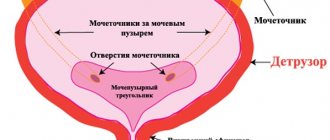A nephrologist is a doctor who studies the anatomy, functionality, developmental anomalies, pathologies of the kidneys and treats kidney diseases.
In addition, the nephrologist adjusts the doses of drugs prescribed by other doctors in accordance with the filtration and excretory potential of the kidneys. The nephrologist selects a therapeutic diet with limited salt, an optimal drinking regimen for patients, recommends a set of therapeutic exercises, and adjusts lifestyle. If necessary, prescribes inpatient treatment and strict bed rest.
The profession of a nephrologist involves not only the treatment of diseases of the kidneys themselves, but also the correction of pathological changes in them in case of damage to the organ due to other nosologies. The doctor also resolves issues related to hemodialysis and kidney transplantation.
A nephrologist treats:
- Nephritis of various etiologies.
- Kidney prolapse.
- Renal colic.
- Renal failure in acute and chronic forms.
- CKD (chronic kidney disease).
- Amyloid deposition in the organ parenchyma.
- Renal hypertension.
- Neoplasms of various origins.
- Deposition of salts in the kidneys – nephrolithiasis.
- ICD – stone formation.
- Developmental anomalies, congenital or acquired.
- Organ tuberculosis.
- Kidney injuries.
- Drug intoxication that impairs organ functions.
- Polycystic disease is a genetically determined cystic degeneration of the kidney parenchyma.
- Nephropathies of various etiologies.
- Hydronephrosis is an expansion of the collecting apparatus of the organ due to a violation of the outflow of urine.
- Kidney carbuncle.
- Paranephritis is inflammation of the perinephric tissue.
Within nephrology, there is a specialization: a pediatric nephrologist, who deals with nephrological problems in young patients from birth to the age of eighteen.
The doctor specializes in kidney diseases.
A nephrologist works closely with therapists, pediatricians, surgeons, transplantologists, immunologists, gynecologists, hepatologists, infectious disease specialists, nutritionists, and pulmonologists.
What is the difference between a nephrologist and a urologist?
The specialties of a urologist and nephrologist are closely intertwined, since the kidneys are part of the urinary system. However, there are fundamental differences in the activities of these doctors.
| Nephrologist | Urologist |
| Therapeutic specialty, if necessary for surgery, refers the patient to a surgeon | Surgical specialty, uses invasive technologies in diagnosis, operates independently |
| Treats kidney diseases only (in men and women) | Treats diseases of the excretory system of men and women |
| Never diagnoses pathology of the male reproductive system | Diagnoses and treats diseases of the genitourinary system of men |
| Analyzes the need and possibility of kidney transplantation | Performs kidney transplantation (organ collection and transportation, participation in the operation) |
| A narrow specialist, works only in large specialized or multidisciplinary clinics. In cities with a small population, a nephrologist is practically unavailable at the place of residence | A general specialist, conducts outpatient and inpatient appointments in almost every hospital and clinic |
Nephrologist is a narrowly specialized profession; there are not many nephrologist specialists in the country, while there is a tendency towards an increase in kidney diseases, so they are extremely in demand in the medical services market.
What does a nephrologist treat?
The competence of a nephrologist includes the diagnosis, treatment and prevention of many diseases. Below we provide a small list of problems that a nephrologist treats. What does a nephrologist treat?
- Pyelonephritis (acute/chronic) – inflammation of the kidneys, which has a bacterial etiology, is characterized by damage to the calyces, pelvis and parenchyma;
- Glomerulonephritis (acute/chronic), also called glomerular nephritis. Characterized by inflammation of the glomeruli;
- Diabetic, urate nephropathy. In general, nephropathy includes many pathological processes characterized by bilateral kidney damage and varying degrees of failure;
- Partial/absolute inability of the kidneys to secrete/form urine;
- Kidney amyloidosis is a disease in which the functioning of these organs is disrupted due to metabolic disorders, in connection with which a specific substance (amyloid) is formed;
- Interstitial nephritis, lupus;
- Toxic damage to paired organs of the urinary system due to medications;
- Kidney damage due to vasculitis;
- Vascular nephropathies;
- Urolithiasis, etc.;
What does a nephrologist treat in children:
- Children's glomerulonephritis and pyelonephritis;
- Tubolopathies are a group of diseases characterized by impaired functioning of the renal tubules;
- Familial nephropathies;
- Urinary incontinence (enuresis);
- Kidney dysplasia is a pathological development of the genitourinary system in newborns, characterized by a reduced size of one or two kidneys at once and the phenomena arising from this pathology;
- Abnormal pathologies of the urinary system;
- Hemolytic-uremic syndrome is a combination of renal failure (acute) with thrombocytopenia and hemolytic anemia;
- Nephritis against the background of hemorrhagic vasculitis;
- Dysmetabolic nephropathy is a group of diseases caused by metabolic disorders;
History of the profession
Although kidney diseases were familiar to Hippocrates and Avicenna, before T. Boner (1679) there was no clear differentiation between edema of renal and hepatic origin. T. Zwinger (1722) described renal edema in detail; he was the first to diagnose anasarca. A chemical study of urine was carried out by F. Dekkers, who discovered proteinuria in the mid-17th century. A detailed description of the composition of urine was given by D. Colagno already in the 18th century. All these discoveries formed the basis for the works of R. Bright, the founder of nephrology. He linked the clinical manifestations of kidney disease with histological and laboratory changes in tissues and urine (1827).
This is how nephritic syndrome was discovered and described, which remains relevant today. Since the 19th century, the medical community has used the term “Bright's disease” or “Bright's nephritis.” At the same time, a description of albuminuria in diabetes and syphilis appeared (P. Rayer), which finally singled out nephrology as an independent science. From that moment on, all nephrotic pathology was divided into large white kidneys and small, dense ones. Today, this is called hydro- and nephrosclerosis. The further development of nephrology is associated with the creation in the 19th century of the cell theory (J. Schleiden), the main postulates of which are taken as the basis for scientific discoveries in nephrology today. In 1960, the International Society of Nephrology was created.
Our compatriots also made their contribution to nephrology: the Bowman-Shumlyansky capsule (1972), the Zimnitsky test (1921), the classification of nephritis by Lang and Myasnikov (1924). Modern nephrology develops on the basis of immunology and genetics, biopsy, transplantology and hemodialysis.
Richard Bright is the founder of nephrology.
Responsibilities of a nephrologist
The main responsibilities of a nephrologist are:
- Outpatient consultations and inpatient patient management. On-site surveys in remote areas.
- Referral for examinations: ultrasound, CT, MRI, angio- and scintigraphy, kidney biopsy, etc.
- Clinical examination.
- Preparation and implementation of hemodialysis in a hospital, clinic and at home.
- Participation in consultations of doctors when deciding on kidney transplantation.
- Preparation of documentation, referrals to medical examination, issuance of sick leave.
Diagnosis of kidney diseases
After a conversation with the patient, the nephrologist refers for examination. It is important to listen to the doctor’s recommendations, undergo all tests, and do an ultrasound of the kidneys.
At the appointment, the doctor tells patients the rules for preparing for blood donation, urine collection, ultrasound examination, biopsy, and other types of research. Only if you follow the recommendations will the test result be accurate.
Diagnostic methods:
- general urine analysis;
- bacterial culture of urine;
- analysis according to Nechiporenko and Zimnitsky;
- Rehberg's test.
Additional research:
- angiography;
- kidney tissue biopsy;
- ultrasound examination of bean-shaped organs;
- excretory urography;
- kidney scintigraphy;
- conducting MRI and CT scans of natural filters.
The appointment with a nephrologist does not have a specific focus. Initially, the doctor conducts a survey of the woman to collect information and identify complaints.
The nephrologist will be interested in previous infectious diseases, rhythm of life, nutrition, systematic use of drugs, hereditary diseases, etc. In this regard, you should take a medical card with you, since the nephrologist will necessarily collect information by studying the medical information indicated in the individual disease card.
Subsequently, the nephrologist performs an external examination of the woman and palpates the abdominal cavity, and also, often, taps the kidneys with a finger.
To make an accurate diagnosis, a nephrologist needs to study the results of various diagnostic methods and tests. What tests may be required:
- Nechiporenko study (urine);
- OAM and UAC;
- Culture of urine for flora;
- BAC for creatinine, uric acid and urea levels;
- Analysis for cholesterol and triglycerides;
- Samples of Reberg and Zemnitsky;
- Daily diuresis;
- Kidney tissue biopsy;
Note. If you have been scheduled for a consultation with a nephrologist, you should first take a general urine and blood test and, taking the results of laboratory tests with you, go to the appointment.
What diagnostic methods can be prescribed:
- Retrograde pyelography;
- Antiography;
- Kidney scan;
- Nephroscintigraphy;
- X-ray of the kidneys;
- Pneumoperitoneum (injection of gas into the abdominal cavity);
- ECG;
- CT scan;
- Ultrasound examination of the kidneys and abdominal organs;
- Radioisotope radiography;
Only after conducting a comprehensive examination can the doctor prescribe treatment, which usually includes adjusting the diet (diet), taking various medications, and physical procedures (physiotherapy). If diseases requiring surgical intervention are identified, the nephrologist refers the patient to the urology department.
nephrologs.ru
First, the nephrologist will definitely send you for urine tests. Firstly, this is a general urine test, and secondly, daily urine collection.
It will help you understand whether there are problems in the functioning of organs during the day and how the time of day affects their condition in general. A urine culture will also be needed.
Which will detect harmful bacteria. If they are, you have inflammatory kidney disease (either viral or bacterial).
The following methods are used for diagnosis:
- Ultrasonography. Using echography, you can examine the kidney tissue for the presence of neoplasms, and also determine whether this organ is located correctly. Using Doppler ultrasound, you can study the blood flow in the kidneys;
- Using excretory urography, you can determine the condition of the tissues of the kidney and urinary tract;
- Angiography. Similar to the previous method (combination of x-ray and contrast study). It will help determine the condition of the kidney vessels, blood flow, and vascular functionality;
- Kidney CT. Layer-by-layer scanning, providing very accurate information;
- Kidney MRI. A very accurate and safe, but expensive method;
- Nephroscintigraphy. A radioactive drug is injected into the body;
- Biopsy. Kidney tissue is examined under a microscope. Allows you to detect changes in tissue structure;
- Blood chemistry.
Your doctor may also refer you for scintigraphy, retrograde pyelography, pneumoperitoneum, or chromocystoscopy.
To understand what examination to send the patient for, the nephrologist performs palpation, an initial examination, etc.
Requirements for a nephrologist
Basic requirements for a nephrologist include:
- Higher medical education, current accreditation certificate in nephrology.
- Availability of a medical record.
- PC skills, ability to work in the clinic’s unified information system.
The specialist most often conducts consultations in hospitals with a nephrology department.
What clinical signs require you to contact a doctor?
The following points may indicate that the organ is not coping with its functions:
- lack of urine output;
- lumbar pain – symmetrical or on one side;
- excessive urine production;
- renal colic;
- protein or blood in the urine;
- inflammation affecting the organ.
In some cases, a urologist-nephrologist should perform an examination when there are no obvious indications of this, but there are concomitant diseases. Hypertension often becomes like this. It can form against the background of hidden processes occurring in the kidneys. For this reason, if a persistent increase in pressure is detected, a doctor’s examination is required to exclude a possible abnormality in the functioning of the organ.
The child should be shown to a specialist in the following cases:
- presence of blood or mucus in the urine;
- crying when urinating;
- swelling, even if it is only swelling of the eyes;
- the color, clarity, or smell of urine has changed;
- urine output has decreased to a third of the usual volume;
- urination at night in children over 4 years of age;
- constant redness of the external genitalia.
A number of nephrological diseases can be asymptomatic for a long time. But there are a number of clinical signs for which you should immediately seek advice from a nephrologist. These include the following:
- renal colic;
- frequent increases in blood pressure;
- pronounced pain syndrome affecting the lumbar region;
- feverish condition;
- frequent urge to urinate;
- cloudy urine, the appearance of bloody impurities, a strong unpleasant odor;
- an increase or, conversely, a decrease in the volume of excreted urine;
- increased swelling;
- dysuric disorders.
Immediate consultation with a nephrologist is necessary when serious deviations from normal values are detected in laboratory urine tests and in patients with diagnosed diabetes mellitus.
How to become a nephrologist
To become a nephrologist, you must:
- Graduate from a university or medical school with a degree in General Medicine or Pediatrics.
- Receive an accreditation sheet. To do this, you need to pass an exam and successfully pass an interview with an expert commission.
- After this, you can work with patients on an outpatient basis (for example, a therapist or pediatrician).
- To obtain a narrow specialization, you can enroll in a residency (2 years of study) in the specialty “Nephrology”. It’s easier to pay , because The competition is small and for admission you only need 50 certification points. for free in two ways: through a competition on a general basis or through a targeted referral from the chief physician of a medical organization in which the specialist is already working.
Every year, doctors are required to score 50 certification points. To do this, you can take advanced training courses (36 points), attend scientific and practical conferences (the number of points depends on the event, but usually about 10 points), publish scientific papers, write books, defend dissertations. If you have collected enough points, you can continue working. If the points are not scored, then you will have to either stop practicing medicine or solve this problem in “non-standard” ways.
Learn more about accreditation and internship cancellation.
The experience, skill and quality of a doctor’s work are usually assessed by qualification categories , which can be obtained by defending a research paper. During the defense, the commission evaluates the doctor’s skills in the field of diagnosis, treatment, prevention, as well as the relevance of his knowledge.
What are the qualification categories:
- second – over 3 years of experience;
- first – more than 7 years of experience;
- Higher - more than 10 years of experience.
The qualification category allows you to occupy high positions in medical institutions, gives the right to a salary increase, gives status in the professional environment and high trust from patients. Even more respect can be achieved by speaking at conferences, symposiums and writing scientific articles and papers.
A doctor has the right not to qualify, but this will hinder his career and professional growth.
When is a child’s nephrologist consultation necessary?
Kidney diseases are often observed in children who have suffered from infectious diseases (tonsillitis, tonsillitis, scarlet fever, acute respiratory infections).
Consultation and treatment with a nephrologist is necessary for the following manifestations:
An increase or decrease in the volume of urine up to 1/3 of the norm excreted per day;
Changes in the characteristics of urine - color, smell, consistency;
Edema syndrome - consultation with a specialist is necessary even if slight swelling appears in the eye area;
The presence of mucus and blood in the urine, cloudy sediment;
Redness of the external genital organs, pain when urinating;
Night urination in children over 4 years of age.











